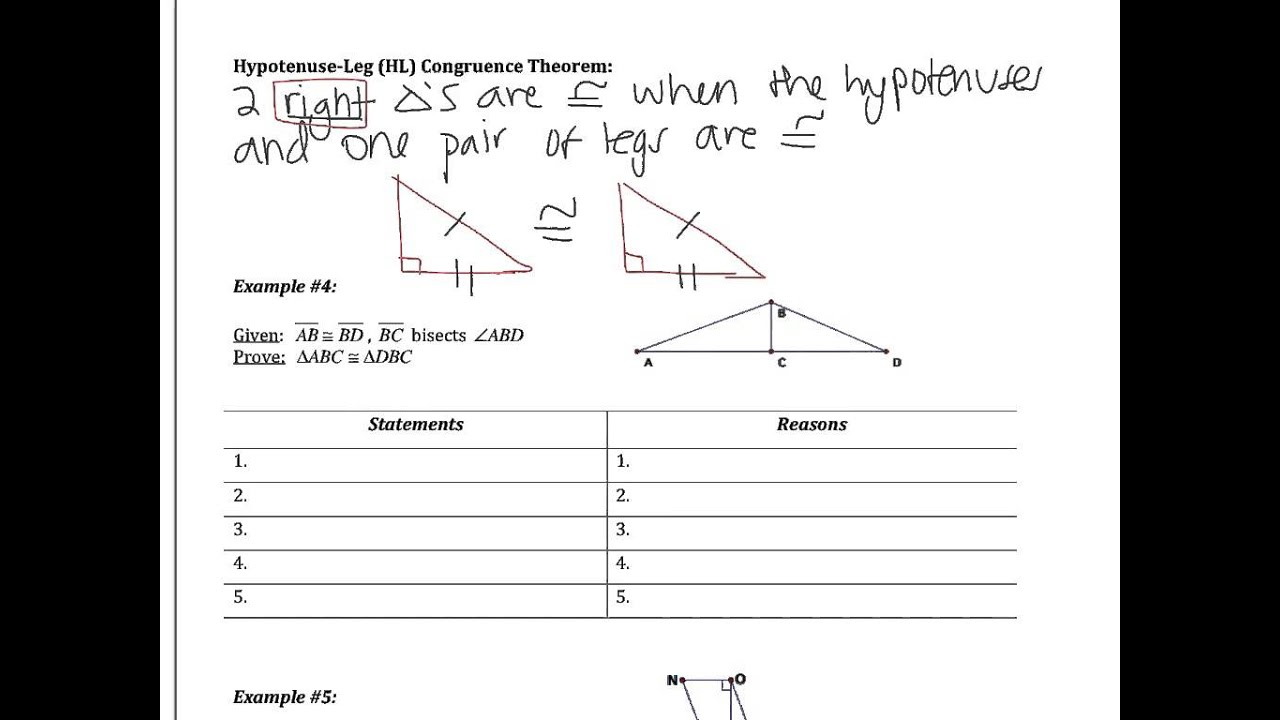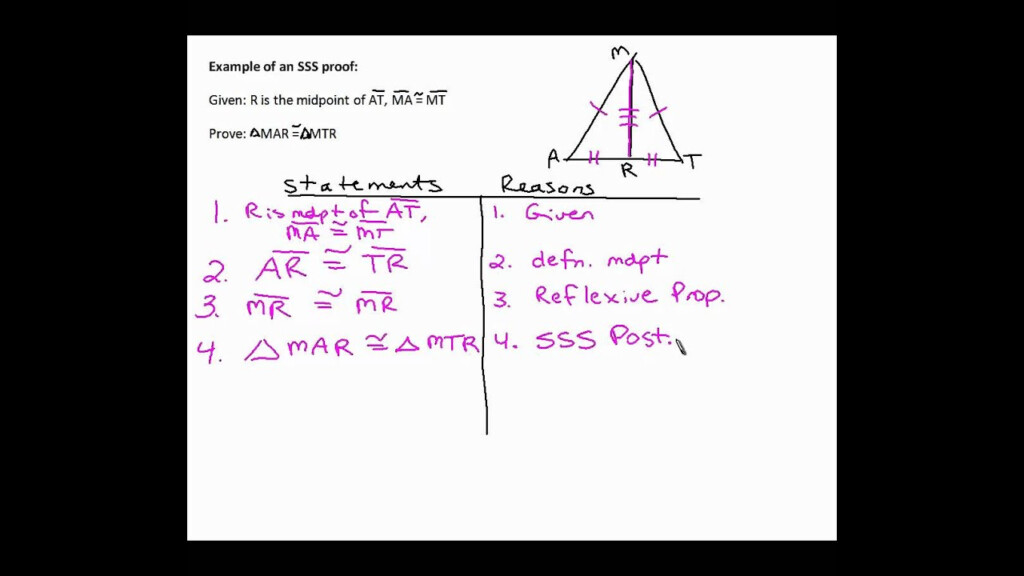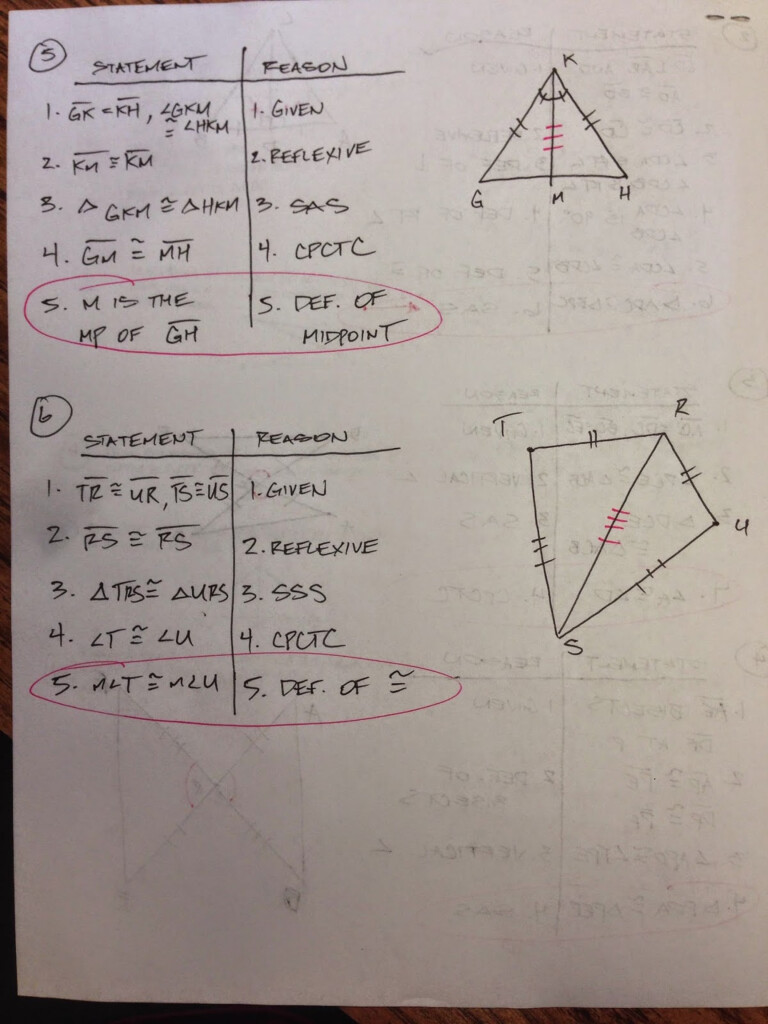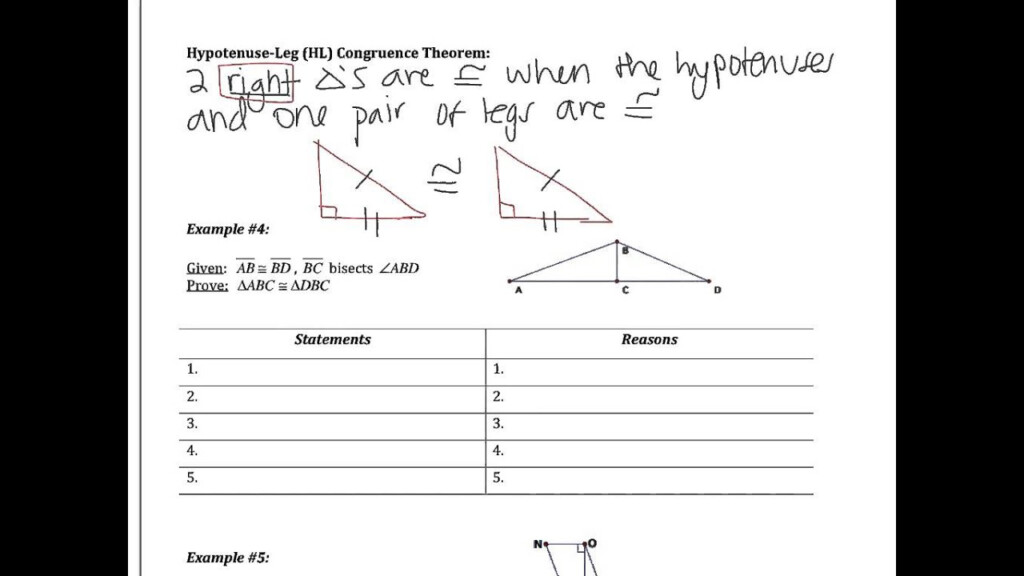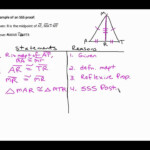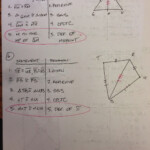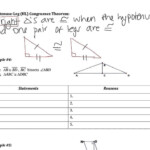Geometry Triangle Congruence Proofs Worksheet – Triangles are one of the most basic shapes found in geometry. Understanding triangles is important for understanding more advanced geometric principles. In this blog We will review the different types of triangles triangular angles, the best way to calculate the dimension and perimeter of the triangle, and offer the examples for each.
Types of Triangles
There are three types that of triangles are equilateral isosceles, as well as scalene.
- Equilateral triangles are made up of three equal sides, and three angles of 60 degrees.
- Isosceles triangles have two equal sides and have two equal angles.
- Scalene triangles are made up of three sides and three different angles.
Examples of each kind of triangle will also be provided.
Triangle Angles
There are three angles within triangular shapes: acute right, and obtuse.
- Acute angles are angled less than 90 degrees.
- Right angles are precisely 90 degrees.
- Obtuse angles can be greater than 90 degrees.
Examples of each angle will be shown.
Perimeter of Triangles
The perimeter of a triangle is the total of lengths along its three sides. To calculate what is the radius of a triangle, you add up the lengths of its three sides. The formula for calculating the perimeter of triangular shapes is:
Perimeter = Side A + Side B + Side C
A few examples of how to calculate the perimeter of triangles will be demonstrated using various kinds of triangles.
Area of Triangles
The space of a rectangle is how much space is inside the triangle. To calculate the size of a circle, it is essential to determine that the distance between the bases as well as the height of the triangle. The formula for the dimension of an area in triangles are:
Area = (Base x Height) / 2
A few examples of how to determine the area of an area triangle will be presented by using various kinds of triangles.
Conclusion
Understanding the concept of triangles is an important component of learning the basics of geometry. Knowing the different types of triangles, triangle angles, and knowing how to calculate the perimeter and area of a triangle can help you resolve more difficult geometric issues. Through our comprehensive triangle worksheets, you’ll be able to increase the understanding of these basic principles and improve your geometry abilities to the next tier.
